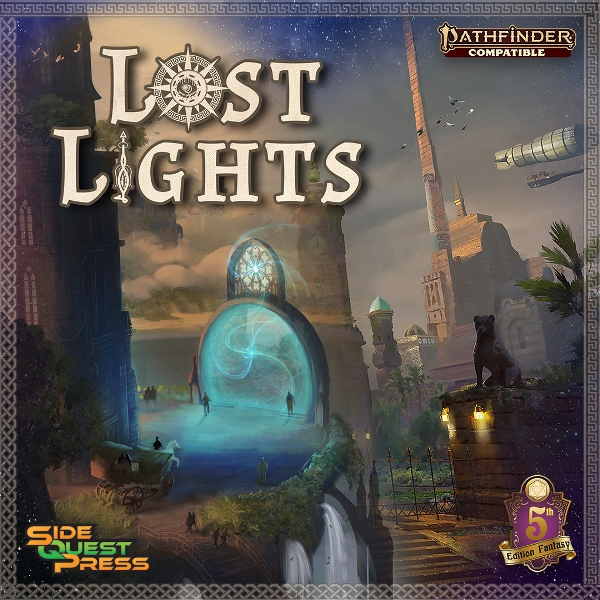Religion
By Cape Rust
Religion is a touchy subject for most people in the real world, and sometimes this can translate into their “in game faith” as well. Many fantasy games include polytheistic religious systems that mirror real world religions. As a GM it is always incumbent upon you to make the world your players inhabit feel alive and fluid; religion is a great tool to do just that.
While some people might rail at the thought of fantasy religions mirroring real world religions, as a GM, and as a gamer, this actually works to your advantage. Most schools these days teach basic classes or lessons on world religion. Most of the major events in history have been driven by religion, so most people have at least a working knowledge of not only their religion, but other religions as well. Even most people who don’t believe in religion have those same knowledge sets as they know what other people believe, but simply don’t share those views. This knowledge, no matter if it is gained through faith or doubt, will help you make fantasy religion seem much more real.
It doesn’t always happen, but in quite a few of the game systems I have played in, many of the religions founded in warmer, desert climates tend to feel Islamic and I have often seen ancient Egyptian gods directly inserted, or a pantheon that changes the names of those gods. While Islam is a monotheistic belief system, game designers seem to like changing mono to poly, but keeping many of the pillars of the Islamic faith in tact when they develop their desert kingdoms and the gods they follow. Many designers have the warm weather faithful praying several times a day, just as Muslims do. If this is the case in the world you are gaming in, and don’t know much about Islam, go to your local library, go to the children’s section and find several books that describe Islam.
Now I know you are thinking: “Why the children’s section?” It is simple: books written for children tend to be short, easy to read, have great pictures and most importantly full of good, useful information. I always harp on time management skills for DMs and this approach to learning about other religions fits nicely into that category. If one of the religions in your world mirrors a real world religion, then this quick blast of information is the way to go, especially if you have not had much exposure to other religions. Most sourcebooks give you the basic information you need to kind of make a religion feel alive, but the extra time you take to research the mirror real world religion will really make a good game great.
If you did have a few classes on world religion or have had the chance to be exposed to multiple religions, then it should just be a matter of reading the sourcebook entry for a religion and trying to find the real world equivalent so that, at a bare minimum, you have an idea of how you think that religion works. Because we are dealing with religions in the game that actually do not exist, if you don’t have things completely right, things should be okay.
However you gain knowledge of a religion, it is always fun to take some aspects of it, especially some of the lesser known aspects, and adjust them slightly to fit in with an in game religion. Here is a great example: In the Mormon faith, especially with the LDS and some Mormon fundamentalist churches, Temple garments are worn. These Temple garments were brought to light to the mainstream public when Mitt Romney (a Mormon) ran for president. These garments were referred to as “Magic underwear” by the media and many people outside of the church. To Mormons these garments are a reminder of covenants of their faith. Why not add Temple garments as an aspect of in game faith? I’ve seen many shamans and some other casters who are required to have some type of vow or restriction on their daily life. Why not add some special garments that a faithful must wear? Even if the in game religion doesn’t mirror the Mormon faith, you can still use an aspect like this to add flavor.
RPGs are games and should be fun. If religion becomes an issue at the table, do everything you can to diffuse it ASAP. There will always be players who take some aspect of a game’s religions personally; if they do, it’s easy to just change the offensive aspect, or let the player know that it is how things are and it is just a game. I have sat at tables where some of the most devout people I know have played characters who didn’t believe in the gods and I have seen dyed in the wool atheists play the best Clerics and Paladins I’ve ever seen.



